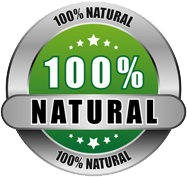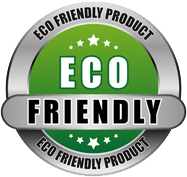DON'T JUST TAKE OUR WORD FOR IT
The effectiveness of natural refrigeration dehumidifiers has been verified by independent testing:
- As noted by the Food Engineering Directorate, U.S. Army Research, Development and Engineering Center… "It is clear from these studies that ethylene absorber filters … should be used in all fruit and vegetable storage areas in order to ensure maximum shelf life at an affordable cost."
Why do we use ZEOLITES with the ACTIVATED COCONUT SHELL CARBON???
FROM A 1980 PATENT APPLICATION... "Zeolite exhibits a large adsorption capacity with respect to substances of relatively small molecular weight such as ethylene gas. Activated carbon is excellent in its adsorption capacity of substances having relatively large molecular weight. Montmorillonite is capable of adsorbing water and carbon dioxide gas besides gases such as ethylene generated from vegetables and fruits in their ripening process."
By combining activated carbon with zeolite, individual gas capturing characteristics are amplified and prevent caking together of the activated carbon granules when exposed to moisture laden air streams. As such, when used in odor control (the mix is) seven times more effective than the best activated carbon alone.
Additionally, when used in any of these odor control applications it absorbs sufficient quantities of ammonia to be directly useful as a nitrogen rich fertilizer for regenerative agriculture applications. Regenerative agriculture, if practiced on the earths 3.5 billion tillable acres, could sequester up to 40% of current CO2 emissions.
Industry is just now moving forward...
"Some manufacturers offer models that use enhanced carbon filters. Some use a carbon-zeolite mix. This provides protection where greater adsorption is required for ethylene, ammonia and volatile organic compounds."
The U.S. Army study excerpted below shows the effectiveness for other fruits and vegetables as well as the economic benefits, using a mineral mix very similar to RD FRESH.

USE OF ETHYLENE ABSORBERS IN EXTENDING SHELF LIFE
John A. Ayoub,
Dr. Margaret G. Driver, Dr. Irwin A. Taub
Nature of the Problem: Ethylene is a natural plant hormone produced by metabolism in most fruit. It initiates and accelerates the ripening of fruit and causes vegetables to deteriorate. This unavoidable process is a major problem, since in almost all applications noncompatible fruits and vegetables (i.e., ethylene emitters and ethylene sensitive items) are stored and/or shipped in the same container. If we could keep the level of ethylene as low as possible, we would be able to slow the maturation of the fruits, protect the vegetables, and reduce spoilage to a minimum. Technical Strategy: One of the simplest ways to remove ethylene from the atmosphere is to absorb it.
Field Test II (Korea by Surface Vessel). his test was the most controlled of all the field tests to date. In cooperation with DSR-PAC in Alameda, CA, we set up a three-week shipping test to South Korea. Large lots of FF&V were split and placed into two identical 40 ft. sea vans, one with and one without absorber filters placed near the air inlet to the cooling system operation at 36°F. The produce was inspected by a Quality Assurance Specialist from DSR-PAC and a Natick Project Officer before loading in Alameda and after unloading from the container ship in Pusan, South Korea. The atmosphere in each van was also sampled for the concentration of ethylene. Upon arrival in Pusan, the atmosphere in the test van with the absorber filters had an ethylene concentration of 1.8ppm, while the atmosphere in the control van had 29ppm (more than 16x the concentration). The fruits and vegetables in the absorber-protected van were in excellent condition. In the control van, many of the green leaf vegetables were completely spoiled and most of the fruits were ripe enough for immediate use.
| TABLE II – SOUTH KOREA RESULTS – FIELD TEST II | ||
| Product | Test VAN | Control VAN |
|
Cabbage Celery Peas Escarole Pears Nectarines Kiwi fruit |
Fresh, crisp,
good green color Fresh, crisp, 3% decay-tops Fresh, green, <1% rot Some decay at tips Mostly Firm Mostly Hard Mostly firm, 1% decay |
Yellowish
green, 11% decay 100% rot surveyed Fresh, green, 14% rot, mold 100% decay surveyed Firm to ripe, many ripe Mostly hard to firm, 13% decay Mostly ripe, 2% decay |
Comparative Economic Aspects: In order to know the overall economic benefits of using ethylene absorbers, you have to determine the savings due to reduced spoilage and compare it to the cost of absorbers required. Using the example of the shipment to South Korea, the estimated savings due to a reduction in spoilage at destination was $928 while the cost of the absorbers was $160, thus a net benefit of $768 (A 480% Return On Investment)




